Saturday, 31 January 2026
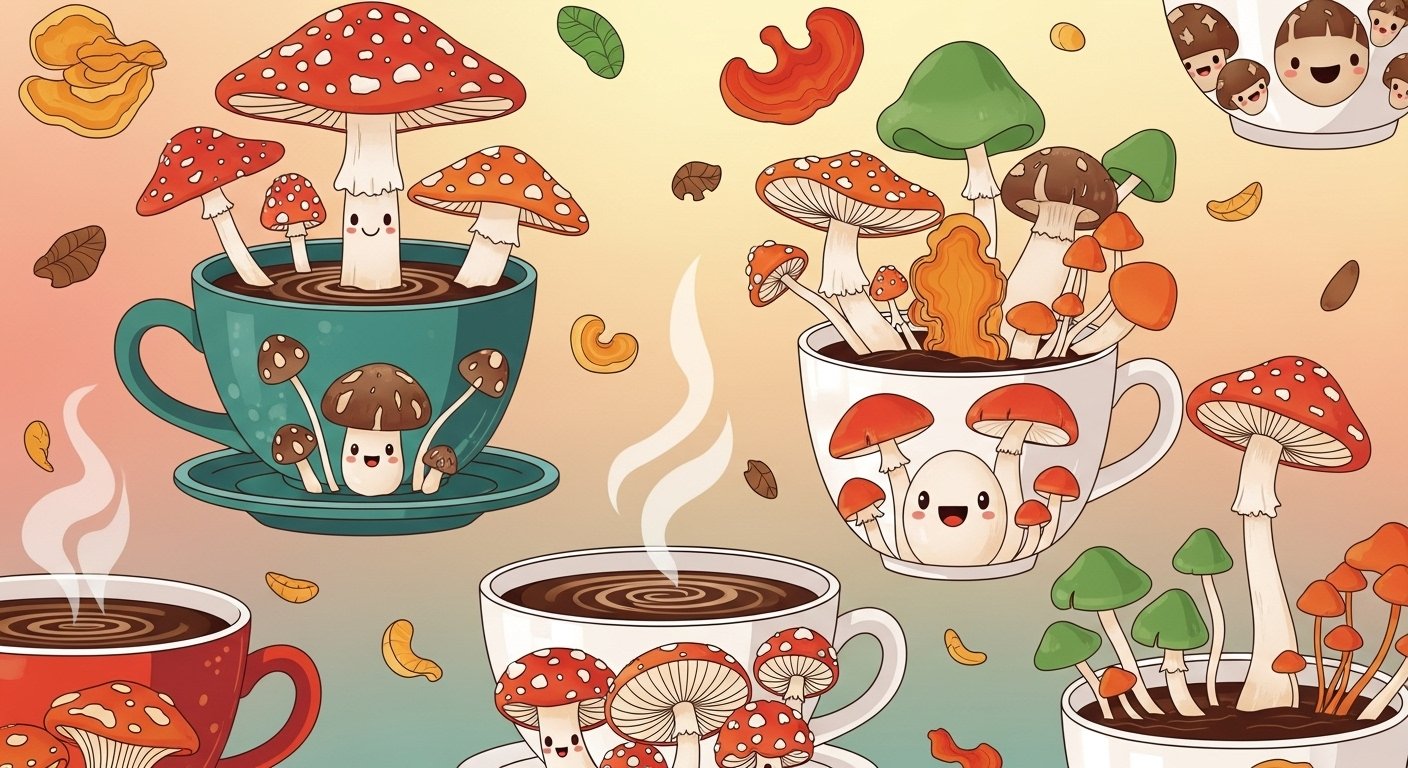

In an exclusive Agrospectrum & NUFFOODS Spectrum interview, Jashid Hameed, Co-Founder of Nuvedo, highlighted mushroom coffee as a transformative entry point in the functional beverage market. He emphasized that integrating medicinal mushrooms like Lion’s Mane, Reishi, and Cordyceps everyday coffee or tea allows consumers to access multi-dimensional health benefits- for cognition, immune resilience, and stress modulation – without having to change their habitual morning rituals. Hameed contrasted mushrooms with other functional ingredients, noting their superior bioavailability, cleaner taste profiles, and climate-resilient cultivation methods. He also positioned mushroom coffee within the “Fourth Wave” of coffee, where personalization, cognitive support, memory care and sustainability define consumer demand. Finally, Hameed underscored Nuvedo’s vision of scaling evidence-backed, climate-conscious functional beverages globally while keeping rituals, flavor, and convenience at the forefront.
What exactly is mushroom coffee or tea ?
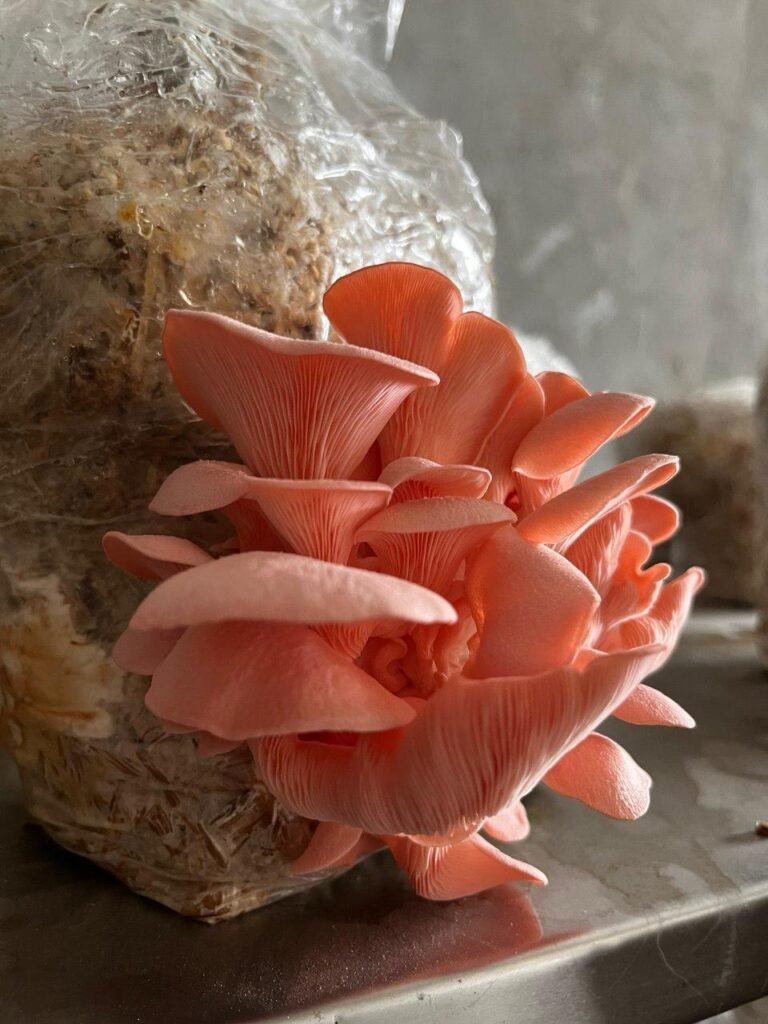
Mushroom coffee or tea isn’t as unusual as it sounds. At its core, it’s your daily cup of coffee or tea — enriched with adaptogenic mushrooms such as Lion’s Mane, Reishi, or Cordyceps. The idea is simple: you keep your familiar caffeine ritual, but with an added layer of potential wellness. These mushrooms are valued for their nootropic (brain-supporting), adaptogenic (stress-balancing), and immune-supportive properties. By blending them with high-quality coffee beans or tea leaves, mushroom beverages aim to deliver functional benefits in a way that feels seamless, flavourful, and convenient — no need to change your routine or compromise on taste.
Why choose mushrooms over traditional plant-based ingredients for functional beverages ?
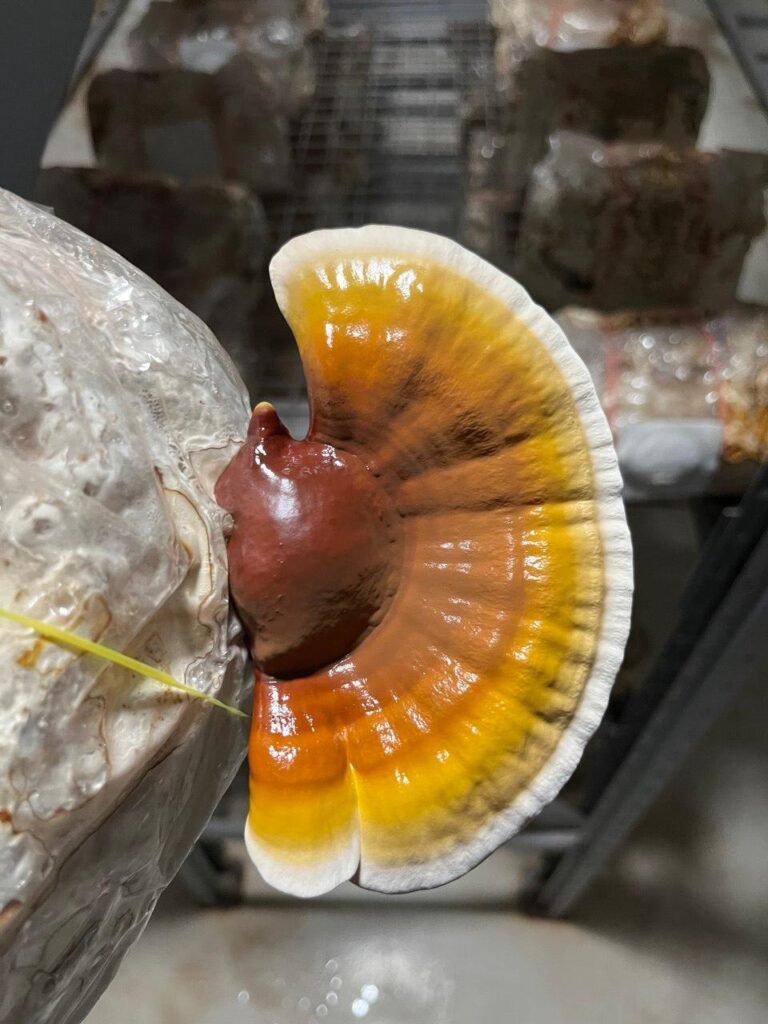
Mushrooms are a quiet powerhouse in the functional food space. Unlike many botanicals that require a cocktail of herbs to deliver multiple benefits, a single mushroom species can do the heavy lifting. Lion’s Mane, for instance, brings neuroprotective, nootropic, immunomodulatory and prebiotic benefits in one shot — something you’d normally need several plant extracts to achieve from a formulation standpoint, mushrooms have a cleaner taste profile. Plant adaptogens can be bitter or astringent, often forcing formulators to mask flavors with sweeteners or additives. Mushroom powders tend to be more neutral or umami, which means fewer off-notes and cleaner labels.
There’s also a question of efficacy. Fungal bioactives like beta-glucans and triterpenoids are
often more bioavailable because we share roughly 50 per cent of our DNA with fungi. This
evolutionary proximity may explain why fungi have yielded some of the most important drugs
in history — think penicillin, statins, cyclosporin.
For instance, 18 grams of Nuvedo Mushroom Coffee, has 7.09 mg/g Terpene content, thereby serving 127.62 mg Terpenes per serving.
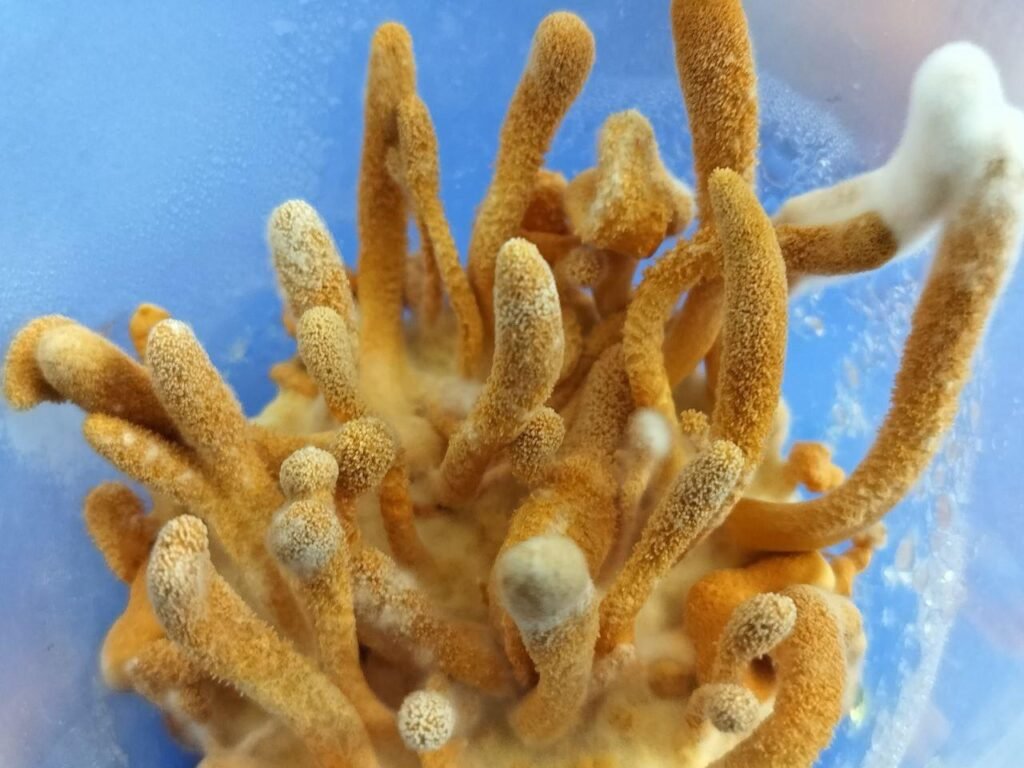
Finally, there’s sustainability. Many botanicals are wild-harvested, making supply volatile and environmentally risky. Mushrooms can be cultivated indoors on agri-waste, creating a circular, climate-resilient production model. Take Lion’s Mane: while botanicals like Brahmi demand 3–4 months in open fields with irrigation and fertilizers, mushrooms can be grown indoors in just 30–45 days on agricultural by-products, using up to 90 per cent less land and water. This efficiency makes fungi one of the most sustainable functional ingredients — delivering proven efficacy with a fraction of the footprint, and aligning perfectly with ESG-driven brands.
Why are mushrooms finding their way into functional beverages like coffee and tea ?
As coffee and tea are already daily rituals, they provide the perfect “Trojan horse” for functional innovation. Instead of asking consumers to add yet another supplement or tonic to their routine, brands are meeting them where they already are — at the morning mug. The appeal goes beyond novelty. Today’s consumers want more from their drinks than just hydration or a caffeine kick. They’re actively seeking beverages that address cognitive wellness, gut health, stress resilience, and immune support.
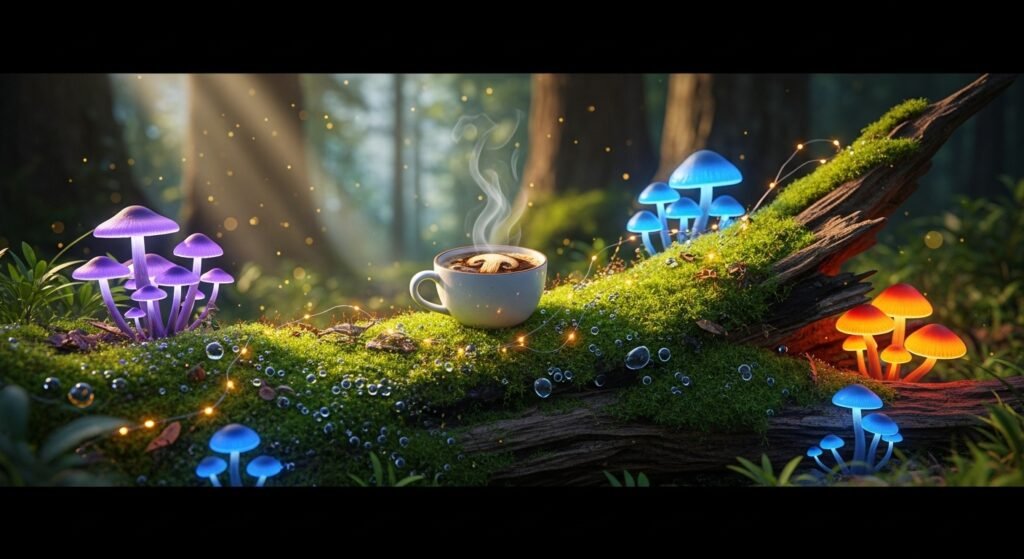
Mushrooms deliver on all of these fronts in a single, clean-label ingredient. Lion’s Mane supports focus and memory, Reishi helps regulate stress, Chaga is packed with antioxidants, and Cordyceps is known for endurance — making it easy for formulators to layer multiple benefits into one cup. Importantly, mushrooms sit at the intersection of nutrition, preventive medicine, and sustainability. They offer bioactive compounds with measurable clinical benefits, can be cultivated on agricultural waste streams, and align with climate-conscious consumer values.
This gives them an edge in the $10+ billion functional beverage market, where brands are under pressure to deliver not only efficacy but also traceability and ESG credentials. In essence: Mushroom coffee and tea aren’t just another wellness fad. They represent a paradigm shift: one ingredient, multiple dimensions of health, minimal taste interference, and a production model that’s as future-proof as it is planet-friendly.
How does mushroom coffee really compare to other functional beverages like kombucha and matcha ?
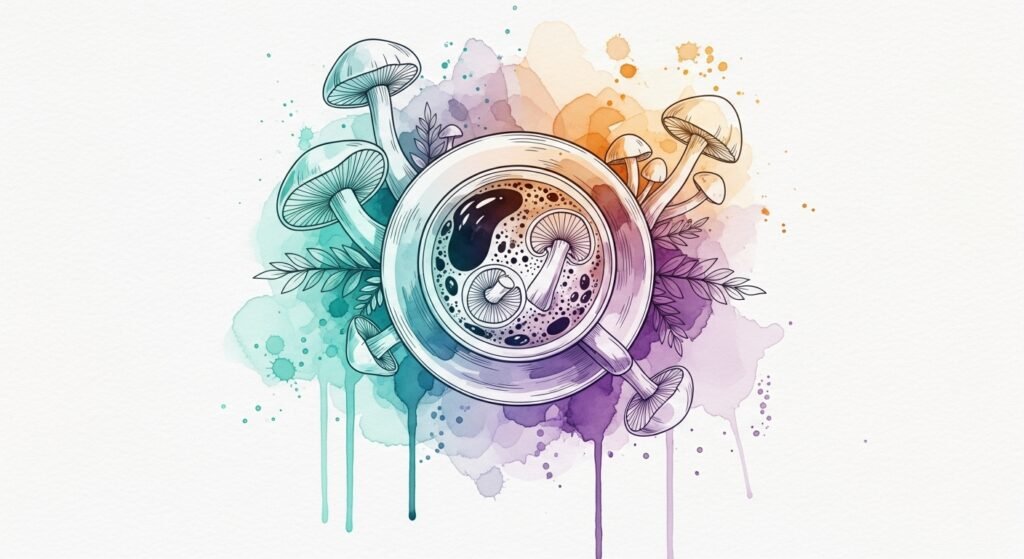
Think of kombucha and matcha as early experiments in functional beverages, and mushroom coffee as the category’s maturation. Kombucha has cultivated a strong wellness halo for gut health, but the scientific foundation is surprisingly thin. Most commercial kombucha is pasteurized, which kills the live cultures that are supposed to provide probiotic benefits, leaving primarily organic acids and flavor. With sugar content often ranging from four to eight grams per serving and high acidity, daily consumption can be impractical and even hard on the teeth and digestive system. Kombucha is no doubt a healthier swap for sodas, but its probiotic ‘superdrink’ status often leans more on marketing than on solid microbiology.
The functional mushrooms used in coffee, by contrast, are backed by over 700 peer-reviewed clinical studies demonstrating measurable impacts on immune modulation, cognitive performance, and gut- microbiome interaction. Unlike kombucha, it can be consumed every day, seamlessly integrating into existing coffee rituals without side effects, making functional wellness effortless.
Matcha, on the other hand, has become the poster child for antioxidant-rich, clean-energy beverages, thanks to its high levels of polyphenols, L-theanine, and caffeine, which together provide a smooth, focused boost. However, it comes with significant trade-offs. With labels like ‘ceremonial grade’ driving up price tags, matcha often becomes more of a luxury than an everyday habit. While L-theanine tempers the stimulant effects of caffeine, matcha is still caffeinated, which may be unsuitable for caffeine-sensitive individuals.
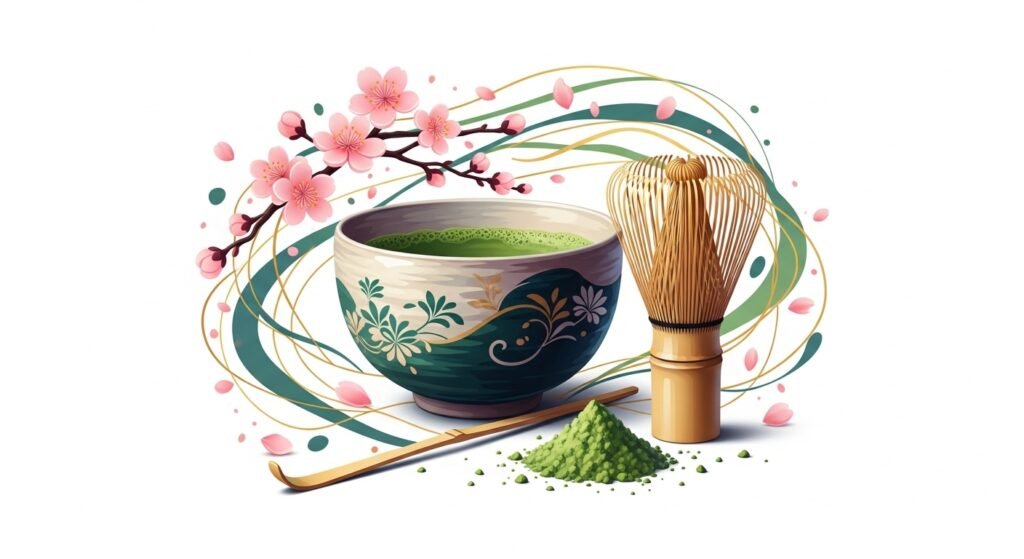
Its supply chain is also highly constrained: nearly all matcha is sourced from a handful of regions in Japan,
meaning global surges in demand create price volatility, authenticity risks, and pressure on limited producers. Mushroom coffee addresses many of the challenges of both traditional coffee and matcha. It still delivers comparable antioxidant and focus benefits, but with a broader functional profile thanks to medicinal mushrooms. Lion’s Mane supports neuroprotection and cognitive clarity, Reishi and Chaga help regulate immunity and stress response, and Cordyceps enhances endurance and oxygen utilization.
Cultivation of these mushrooms is geographically diverse and often uses agricultural waste streams, making it climate-resilient and less dependent on any single region—while giving brands the flexibility to design blends and narratives around specific health outcomes. Across the functional beverage space, beta-glucans from oats, barley, or mushrooms are often marketed for immune and gut health, but mushrooms stand out by offering a multi-compound, multi-benefit matrix. Erinacines and hericenones in Lion’s Mane promote cognitive health, triterpenoids in Reishi help regulate stress, and cordycepin in Cordyceps boosts energy and stamina. Unlike plant-based or fermented competitors, mushrooms deliver a suite of synergistic bioactives that go far beyond a single functional claim.
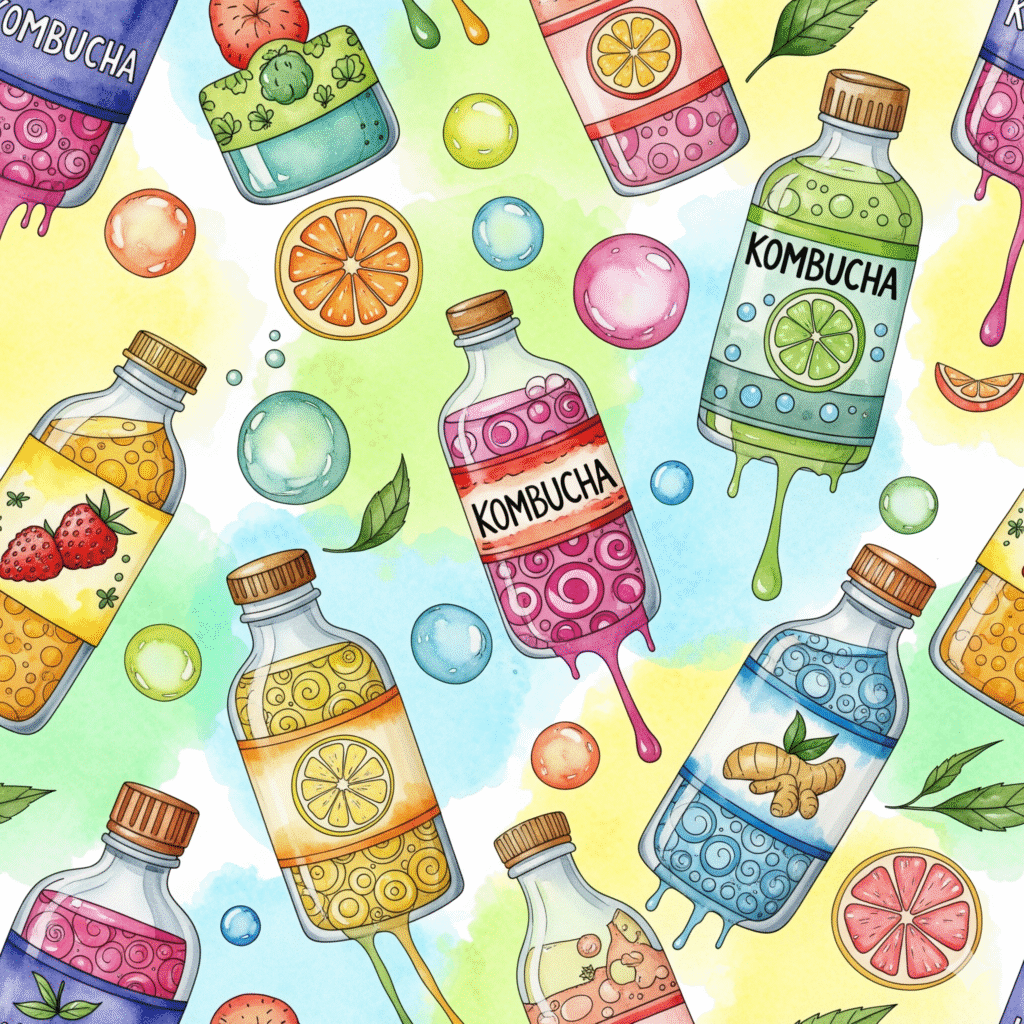
Kombucha has earned its place as a refreshing, gut-friendly alternative to sodas, while matcha remains a mindful ritual with well-documented antioxidant and focus benefits. Both, however, come with limitations—whether in scientific consensus, cost, or accessibility. Mushroom coffee, by contrast, is built on science-backed functional ingredients that support cognition, immunity, stress balance, and endurance. More than just another ‘better-for-you’ beverage, it offers versatility, scalability, and sustainability—combining habit compatibility, health optimization, and future-proof potential in every cup.
Mushroom coffee has been around for decades. Why is it suddenly being called the “fourth wave” of coffee?
The idea isn’t new — Malaysian wellness giant DXN was one of the first to bring mushroom coffee to the global market in the early 1990s. Founded by Dr. Lim Siow Jin, DXN built an empire on Ganoderma lucidum (Reishi) cultivation and direct-to-consumer sales, turning mushroom coffee into a household product across Asia, the Middle East, and even Latin America. Their pitch was ahead of its time: blend coffee’s energy with Reishi’s immune and wellness benefits, while reducing caffeine’s downsides like acidity, jitters, and post-buzz crashes.
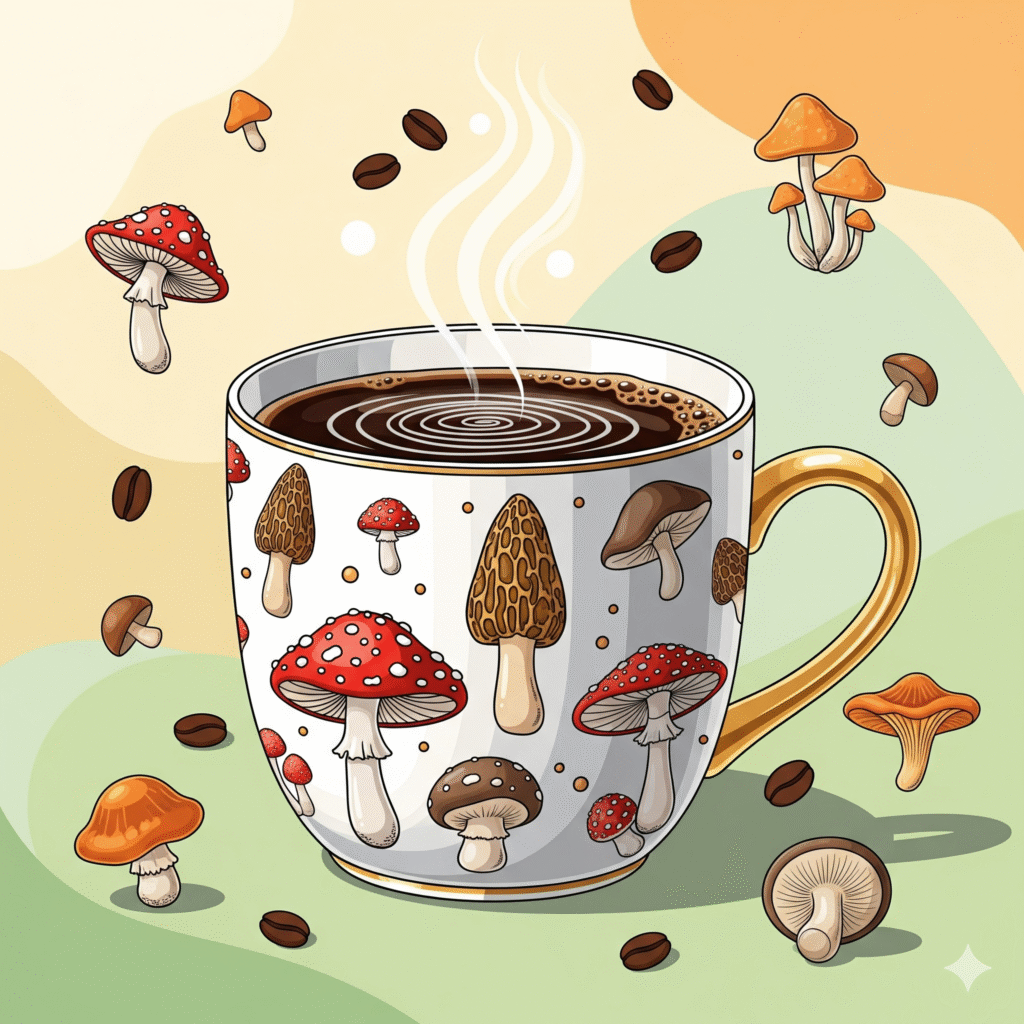
Mini Case Study: DXN – The Ganoderma Coffee Empire
DXN’s rise offers a blueprint for how functional beverages can go global. Rather than positioning Reishi as an exotic supplement, DXN embedded it into a daily ritual — coffee — and used a direct sales (MLM) model to empower distributors worldwide. This created both asales force and a wellness community, helping mushroom coffee gain traction in regions as diverse as India, Mexico, and the Middle East. The company now operates in more than 180 countries, with vertically integrated farms and factories that allow for strict quality control and supply chain stability. By 2000, DXN had already seeded the idea of coffee as a health vehicle — a decade before “functional beverages” became a global wellness trend.
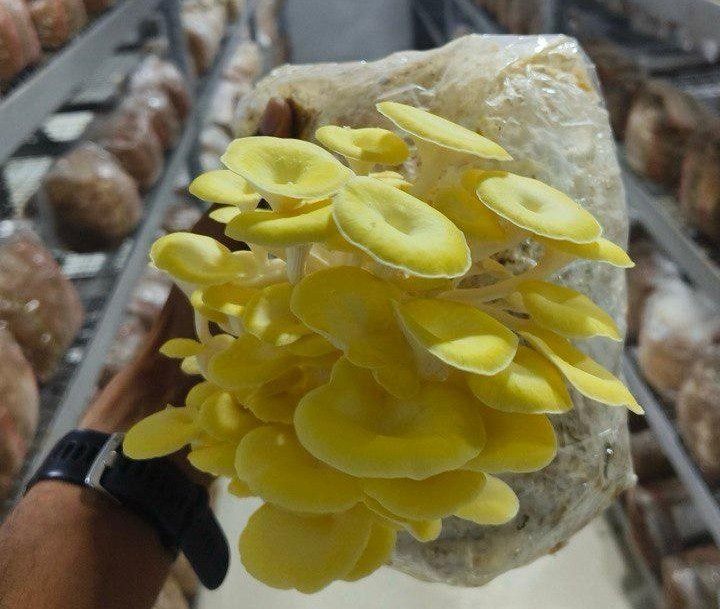
Today, that original idea has been supercharged by science and a consumer base hungry for functional upgrades. Mushroom coffee speaks to a modern pain point — caffeine fatigue. By balancing jitters, acidity, and crashes, it reframes coffee as a “smarter” stimulant. Add Lion’s Mane’s nootropic potential for sharper focus and memory, and you get a cup that delivers mental clarity and sustained energy rather than a short-lived buzz. Even the production methods have matured. The gold standard now is whole-bean infusion — integrating mushroom extracts directly into the coffee beans instead of mixing powders post- roast. This ensures the brew tastes, smells, and feels like premium coffee while delivering
mushroom benefits seamlessly.
This is why mushroom coffee has become a symbol of coffee’s Fourth Wave. If the First Wave was mass-market instant coffee, the Second Wave brought Starbucks-style specialty chains, and the Third Wave celebrated artisanal, origin-focused brews, the Fourth Wave is about personalized, functional, and sustainability-driven coffee. DXN planted the seed — and today’s mushroom coffee brands are scaling it for the wellness-conscious consumer, turning the morning ritual into a health ritual.
— Suchetana Choudhury (suchetana.choudhuri@agrospectrumindia.com)